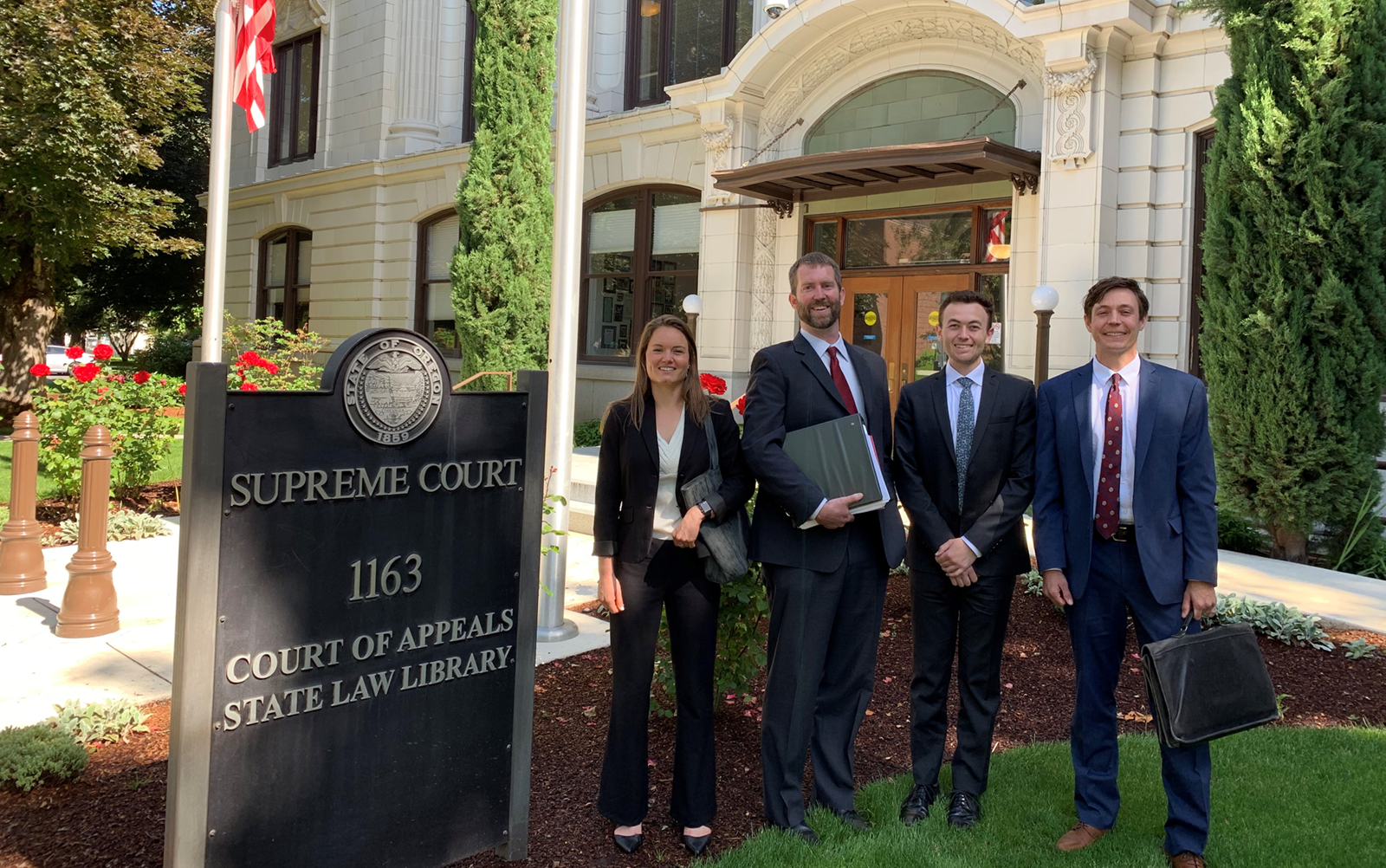by Noah Mikell, Cascadia Wildlands Summer Legal Intern
Last week we kicked off our summer as Cascadia Wildlands’ latest legal interns by attending oral arguments in the Oregon Supreme Court! It couldn’t have been better timing that we started our internships just as attorneys Dan Kruse and Nick Cady were putting the final touches on their Oregon Supreme Court oral argument in the Cascadia Wildlands vs. Oregon Dept. of State Lands (ODSL) lawsuit. This case concerns the ODSL’s sale of the 788-acre East Hakki Ridge parcel of the Elliott State Forest to Seneca Jones Timber Company, which plaintiffs argue is a clear violation of ORS 530.450, which prohibits the sale of the Elliott State Forest. While the ODSL and Seneca Jones (the Intervenor) have readily conceded that the sale violated the statute, they argue that the statute itself was entirely unconstitutional — an argument that Cascadia Wildlands asserts to be incorrect. Following the Appellate Court’s 2016 ruling in favor of the petitioners (Cascadia Wildlands, Audubon Society of Portland, Center for Biological Diversity, and Joshua Laughlin), the ODSL and Seneca Jones appealed to the state Supreme Court, which scheduled oral arguments for June 4, 2019.
We began by familiarizing ourselves with the Elliott State Forest timber sale in question and then accompanied Cascadia Wildlands’ attorneys to the Oregon Supreme Court. Observing and participating in the preparation for oral arguments allowed us to understand the legal mechanics required to construct a successful oral argument – a 30 minute conversation with a panel of judges champing at the bit to ask narrow hypothetical and big-picture questions, all to gain a deeper understanding of how to interpret the law.
After enjoying the visual distractions of 105-year-old courthouse, complete with a marble interior and an intricate stained-glass ceiling, the judges entered the courtroom and the focus turned to the center of the room. The ODSL began with its argument, splitting time with the attorney representing Seneca Jones. Dan Kruse followed, fielding the judge’s questions and challenges calmly and firmly, without skipping a beat. Though we are only first-year legal interns, anyone who heard Dan’s delivery would confidently agree that he rocked it.
Forest management in the United States is rife with problems, and while federal and state agencies have great ability to manage and remedy these challenges, action is not always set in motion properly. It is imperative that conservationists are able to find recourse in the courts, where the impartial judicial branch can enforce the duties of the legislature and executive branches regarding our public lands. As Jess and I watched the law interface with the state government and private industry, we are hopeful that the Court will right what Cascadia Wildlands believes to be a wrong. We are grateful for the opportunity to support Cascadia’s competent legal team and look forward to a fun and challenging experience with the organization. Admittedly, after week one, the expectations are quite high.

